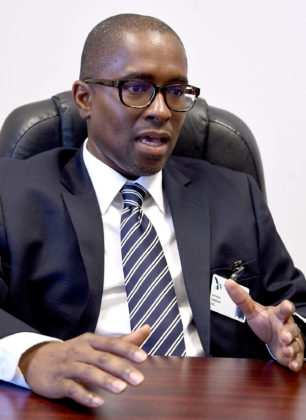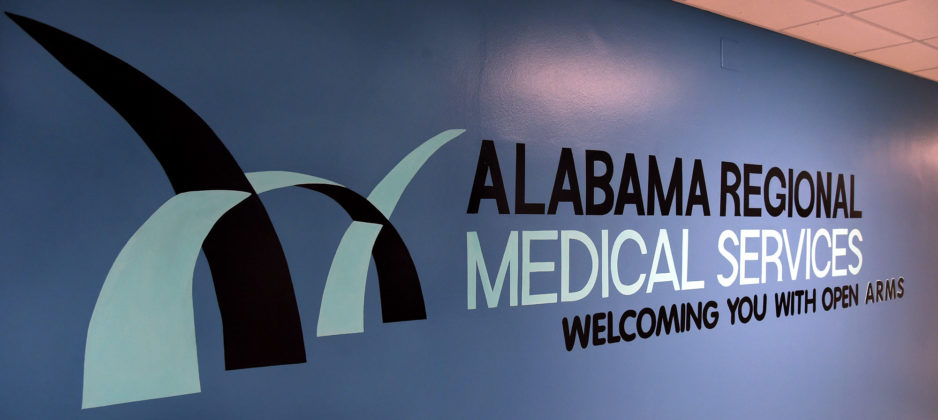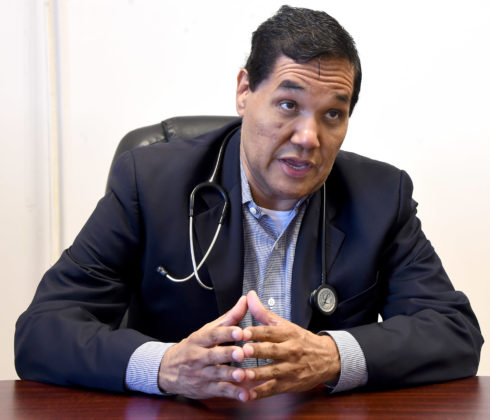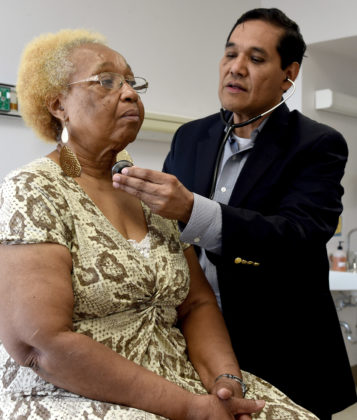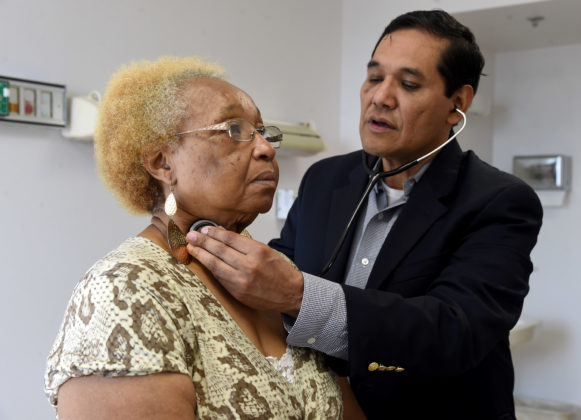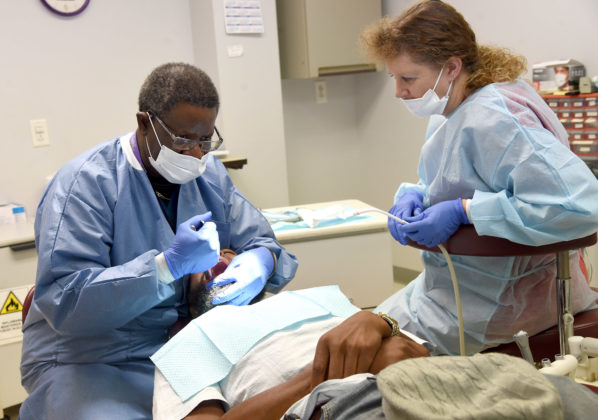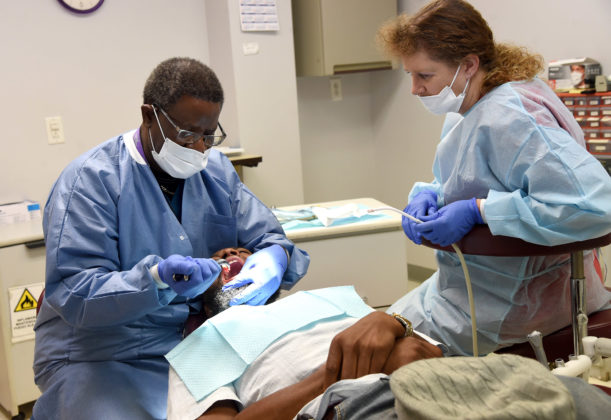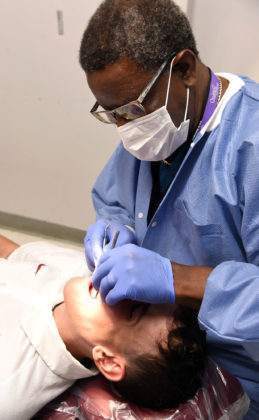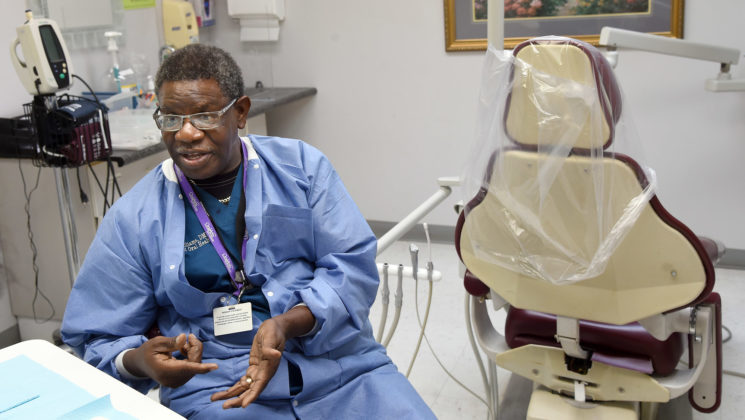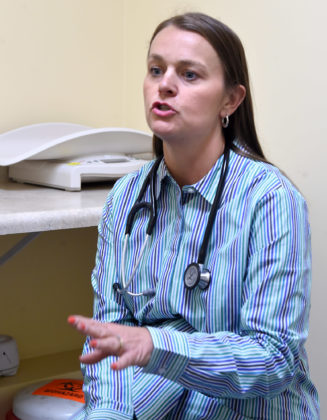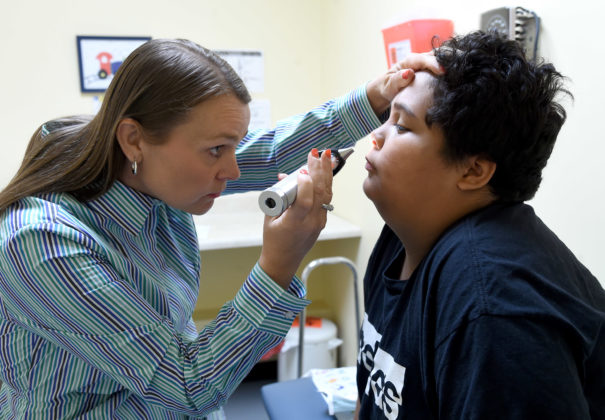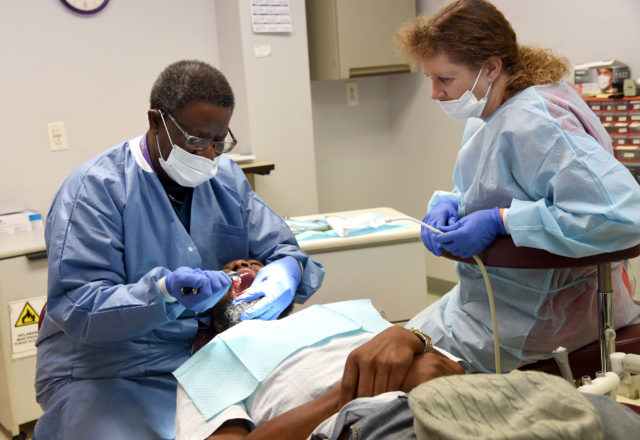
By Ariel Worthy
The Birmingham Times
Ask the team at Alabama Regional Medical Systems (ARMS) in Birmingham about the services provided, and they’ll mention medical and dental care; OB-GYN; behavioral health; and a host of others. But they provide something else, too—laughter.
“Keep it light and humorous,” said ARMS Director of Oral Health Dwight Williams, DMD. “[Patients] come in here with a lot of stress and apprehension.”
Helping people deal with stress and apprehension has been a key, especially given what some underserved, uninsured, underinsured, low-income, and homeless patients face. Williams, who has worked at ARMS since 2004, said many times he has to extract teeth.
“That’s a big deal if you’re homeless and [have] a toothache,” he said. “You’re outside. You’re in pain. I try to have patients relax if they’re coming in for something like that.”
Referral System
Community health centers throughout the Birmingham metro area are working together more than ever to provide services for the city’s underserved citizens.
“We have a referral system through which we refer patients who need surgeries or need to see specialists, so we’ve contracted with specialists in the community to accept our patients at a discounted rate,” said ARMS CEO Anthony Gardner.
ARMS is a community health center that has served the greater Birmingham area for decades. Its aim is to ensure that patients have access to the best care via a partnership among several local agencies, including Cooper Green Mercy Health Services; Access Birmingham, which has specialists who work with low-income individuals; the Jefferson County Department of Health (JCDH); United Way of Central Alabama; the University of Alabama at Birmingham (UAB); and Children’s of Alabama. ARMS, a designated Federal Qualified Health Center (FQHC), offers a broad range of services.
“We’ve always had social workers on site. … We’ve had professionals work with patients who have substance-abuse issues,” Gardner said. “There’s been a push to provide those kinds of services to those who need them.”
Homeless Population
In March, ARMS moved its headquarters from 1600 20th Street South to the Cooper Green building at 1515 6th Ave. South. The organization, founded in 1983 as Birmingham Healthcare for the Homeless, has rebranded—under the slogan “Welcoming You With Open ARMS”—and expanded its services and emphasis.
“Our original focus was on the homeless population,” said Gardner, a graduate of A.H. Parker High School and Talladega College. “We still have a homeless clinic on 24th street, but I don’t like to call it a homeless clinic because we can see everyone.”
Still, care for the homeless remains a critical part of the work.
“I can see people. I can talk to people. I can get a grasp on their needs,” Williams said. “Homeless people used to come in on regular days like everyone else, but we had a schedule and would often leave late trying to get everyone seen. So, I talked to the CEO and said, ‘Hey, let’s open up one day a week on which we really don’t make any money and we can see the homeless.’ We set that day up … all day for homeless patients and wouldn’t schedule anybody that day. We’d see about 20 people.
“I never want people to get the wrong idea about why we did that. One might think I didn’t want homeless people sitting with regular patients, but that was the farthest thing from my heart. I wanted them to be seen because they were hurting.”
Prior to establishing Thursdays for non-paying patients, visitors used to wait for hours.
“Sometimes we’ll have all rooms filled,” Williams said. “We see not only the homeless; we have what you call the working poor. We’re open completely for insured, uninsured, everybody—whether or not they have the ability to pay.”
Extra Steps
ARMS Chief Medical Officer Julio Delgado, MD, provides primary care services. Before he started working at ARMS in September 2016, he was in private practice in Montgomery. He always wanted to care for the homeless population, though, and that’s something he can do that through ARMS.
“When a patient comes in, you don’t think, … ‘What insurance do they have? What can they cover?’ You think about the patients themselves and how to treat them,” Delgado said.
Part of his job is to keep patients as healthy as possible, especially among a population that focuses on daily survival.
“We provide the extensive care they need,” which sometimes means taking extra steps.
“If a patient is not well-read, I show them [what’s going on with their health] based on evidence,” Delgado said. “I show them an extremely elevated blood pressure, [for instance], let them see what is going on in their bodies, and then give them solutions.”
“Mom-and-Pop” Clinic
Katherine Harrison, DNP, a nurse practitioner at the Crestwood ARMS at 7001 Crestwood Blvd., views her facility as a quiet, “mom-and-pop-type” clinic. She joined ARMS seven years ago has been at the Crestwood location since it opened three years ago. She does not see as many homeless patients, but she does see many who are uninsured or underinsured.
Harrison looks at her patients from a holistic approach “even spiritually,” she said: “It’s not beneath me or anyone here to pray with a patient.”
“A holistic approach means looking at a patient from every angle, from the ground up,” Harrison said. “Working here I’ve definitely grown and learned how to not just look at my patients with the mindset of, ‘Here, go get your prescription. See you next time.’ I look at them with, ‘OK, I know you’ve got a lot going on. You take care of your mom. You can’t get here, so let me get you a token for your next trip.’
And that’s part of the facility’s philosophy to welcome all with open arms.
“We try to look at every aspect of the patients’ needs, not just their immediate needs when they walk through the door,” Harrison said.
Click here to read more stories about health: All of Us; Eastern Health Center.

